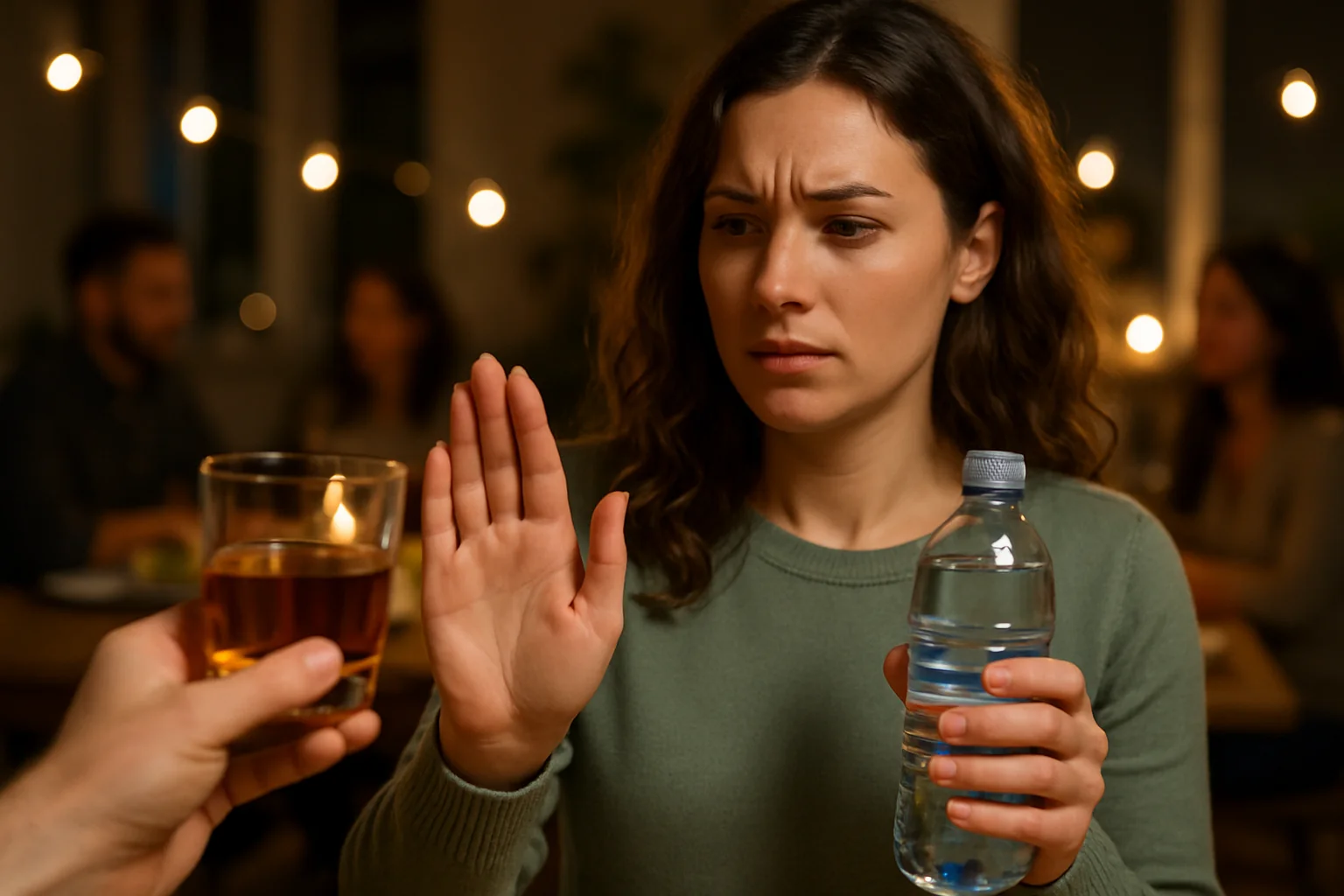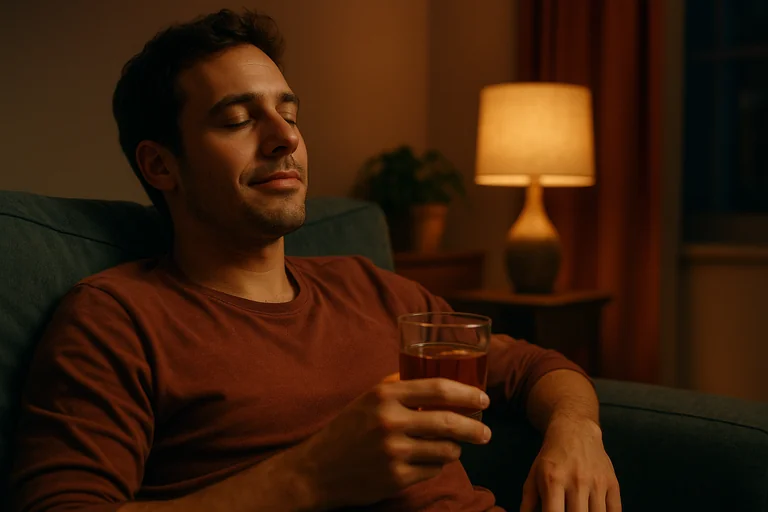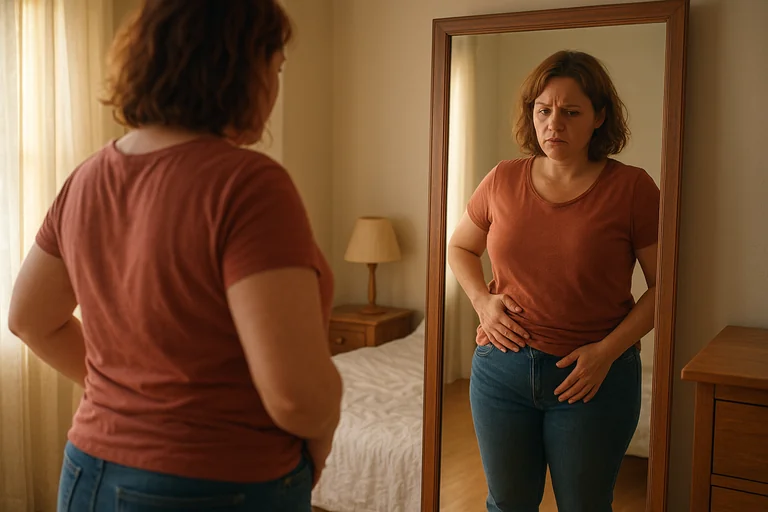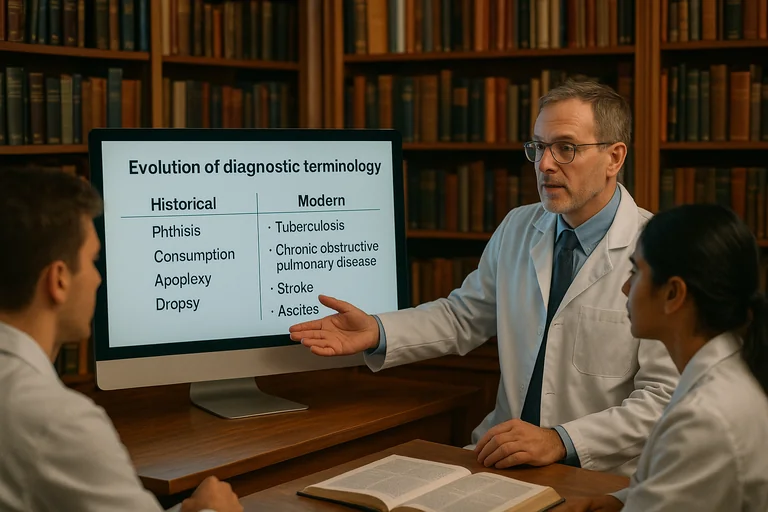A 2 minute assessment to get a personalized mental health or alcohol recovery plan.
Alcohol and most antidepressants pull mood chemistry in opposite directions - creating real safety issues from blackouts to blood pressure spikes, depending on the medication.
What You'll Discover:
- Why alcohol and antidepressants work against each other neurologically
- Medication-by-medication risk breakdown (SSRIs, SNRIs, bupropion, MAOIs, and more)
- Which combinations are "mostly sedation" versus "hard no"
- Practical harm-reduction strategies if you're already mixing both
- How naltrexone can help reduce alcohol use without stopping antidepressants
- When to call your prescriber or seek emergency care
The first thing to know is this: mixing antidepressants and alcohol goes beyond "a drink or two is fine." Alcohol and most antidepressants pull mood chemistry in opposite directions, can intensify sedation and impair judgment, may worsen depression and anxiety, and - depending on the medication - create very real safety issues.
With that in mind, this guide breaks down the risks by antidepressant class, the neuroscience behind why the combo backfires, practical harm-reduction strategies, and where naltrexone-assisted care fits if you're trying to cut back without derailing your mental-health plan.
Why Alcohol and Antidepressants Work Against Each Other
Even a single evening of drinking changes several systems that antidepressants are trying to stabilize.
Neurotransmitters and Mood Circuits
Alcohol acutely enhances GABA (inhibitory) and suppresses glutamate (excitatory). On the rebound (hours to days later), the nervous system overshoots the other way - more glutamatergic "noise," anxiety, impaired sleep, and low mood.
Many antidepressants aim to normalize serotonin/norepinephrine/dopamine signaling. Alcohol's swings can blunt perceived benefit or worsen the very symptoms you're treating.
Sleep Architecture
Alcohol fragments sleep, suppresses REM early in the night, and provokes REM rebound later - net result: less restorative sleep. That's a direct hit to mood, concentration, and emotional regulation the next day - factors antidepressants can't fully "out-compensate."
Cognition and Safety
Antidepressants that already cause sedation, delayed reaction times, or orthostatic hypotension compound those effects with alcohol. Risk: blackouts, falls, car crashes, poor decisions you wouldn't make sober.
Metabolism and Side-Effect Amplification
Alcohol can worsen GI upset, headaches, dizziness, and sexual side effects. With TCAs and some SNRIs, it can nudge blood pressure or cardiac conduction in the wrong direction.
With bupropion, binge-drinking plus withdrawal can increase seizure risk. With MAOIs, certain beers/wines are a hard no due to tyramine content and blood-pressure spikes.
Authoritative resources on alcohol and medicines emphasize these additive/synergistic effects and the variability by drug class and dose. See the NIAAA's consumer guide on mixing alcohol with medicines and the FDA's safety overview on alcohol-medicine combinations.
A Practical, Medication-by-Medication Map
Important: Always defer to your prescriber's guidance. The following is educational, not a substitute for medical advice.
SSRIs (Sertraline, Escitalopram, Fluoxetine, Paroxetine, Citalopram)
Main concerns: Additive sedation, impaired motor coordination and judgment. Alcohol can worsen depression/anxiety symptoms the day(s) after.
Heart/QT: Citalopram has QT-prolongation cautions at higher doses. Alcohol-related electrolyte shifts/dehydration can add risk.
Bottom line: Many clinicians recommend avoiding alcohol or keeping to very low amounts (and never driving). If you notice next-day mood dips or anxiety spikes, that's a strong personal signal to abstain.
SNRIs (Venlafaxine, Desvenlafaxine, Duloxetine, Levomilnacipran)
Main concerns: Similar sedation/impairment. Potential blood pressure elevation with venlafaxine. Liver considerations with duloxetine (avoid heavy drinking).
Bottom line: Exercise extra caution. If drinking at all, keep to low quantities and hydrate aggressively. If you have liver issues or elevated LFTs, alcohol should generally be off the table.
Bupropion (Wellbutrin)
Main concerns: Lowers seizure threshold in a dose-dependent way. Binge drinking and abrupt alcohol withdrawal further lower the threshold.
Bottom line: If you drink episodically/heavily or stop abruptly after heavy use, this combo is high-risk. Many clinicians advise abstaining. If alcohol use is hard to control, talk with your prescriber about alcohol-reduction support.
Mirtazapine
Main concerns: Sedation, dizziness, weight gain/appetite increase that alcohol can amplify. Next-day grogginess worsens with evening drinking.
Bottom line: Often a poor mix with alcohol. If any, keep tiny amounts and test your personal sedation response at home - never with driving or important tasks.
Trazodone (Often Used for Sleep)
Main concerns: Potent sedation, orthostatic hypotension. Alcohol piles on.
Bottom line: Avoid alcohol when taking trazodone, especially as a sleep aid - you're doubling down on CNS depression.
Tricyclics (Amitriptyline, Nortriptyline, Imipramine)
Main concerns: Anticholinergic effects, cardiac conduction changes (arrhythmias), and profound sedation. Alcohol magnifies all of it.
Bottom line: Classic do-not-mix scenario. If you're on a TCA, alcohol avoidance is the norm.
MAOIs (Phenelzine, Tranylcypromine, Isocarboxazid, Selegiline Patch)
Main concerns: Hypertensive crisis with tyramine-rich foods/drinks. Some beers (especially tap/aged/fermented) and certain red wines can be high in tyramine. Alcohol also clouds judgment around food choices.
Bottom line: Requires strict dietary vigilance and typically no to specific alcoholic beverages. Discuss exact allowances with a prescriber familiar with MAOIs.
A Safer Game Plan If You Miss Having a Drink
First principle: You shouldn't have to choose between your mental-health meds and your social life - but the pattern and amount of alcohol matters.
1) Calibrate Your Risk Profile
Which med? Which dose? SSRI versus bupropion versus TCA matters a lot.
Any liver, cardiac, or seizure history? If yes, the safe range shrinks fast.
Your personal data: Track how even one drink affects sleep, mood next day, and anxiety. Your pattern matters more than population averages.
Authoritative overviews to help frame risks: NIAAA - Harmful Interactions: Mixing Alcohol with Medicines and FDA - Avoid Dangerous Combinations: Medicine and Alcohol.
2) If Your Goal Is to Cut Back (Not Necessarily Abstain)
Consider medication-assisted reduction with naltrexone (an opioid-receptor blocker that reduces the rewarding "pull" of alcohol). It's often compatible with SSRIs/SNRIs/mirtazapine/trazodone and does not cause sedation.
Still: disclose all meds. Your prescriber will screen for liver issues and opioid use.
Pair with behavioral supports (brief coaching, tracking, structured limits like "2-drink max, water in between, finish by 9pm").
Protect sleep at all costs (no nightcaps, finish early, rehydrate, prioritize wind-down).
Want a deeper dive on medication options for alcohol reduction? See What Medicine Can Help to Quit Drinking?
3) If You're Early in an Antidepressant Trial (First 4-12 Weeks)
Your brain is still adjusting. Alcohol can muddy the picture of what's "working."
Many clinicians recommend temporary abstinence until you've reached a steady response, then cautiously test tiny amounts (if at all) with your prescriber's green light.
Related read: How Do You Know Antidepressants Aren't Working?
4) If Alcohol Is Worsening Your Depression/Anxiety
Consider a structured break (e.g., 30 days). Use the time to reassess sleep, mood variability, and daytime energy without alcohol in the mix.
If "white-knuckling" is hard, naltrexone can blunt cravings so you actually feel the benefit of the break - and can keep your antidepressant plan unchanged.
FAQs We Hear in Clinic
Q: Is any amount of alcohol okay on an SSRI?
A: Some people tolerate a single standard drink without obvious issues. Others notice next-day mood or sleep fallout. There's no universally "safe" amount - your reaction is what drives the plan.
Conservative default is avoid, then cautiously test ≤1 drink, never if driving, and stop if you notice mood/sleep tradeoffs.
Q: Can I drink on bupropion?
A: This is the riskiest common antidepressant to combine with alcohol, especially binge patterns or abrupt stop after heavy use (seizure risk). Many prescribers recommend abstinence with bupropion.
If cutting back feels hard, seek support first rather than "seeing how it goes."
Q: What about a small nightcap with trazodone or mirtazapine?
A: That's stacking sedatives. It increases risk for confusion, falls, disinhibition, and worse sleep quality overall. We advise no.
Q: Are there antidepressants that "mix better" with alcohol?
A: The real answer is that alcohol tends to undercut antidepressant benefits across the board. If you're committed to keeping occasional alcohol, SSRIs at low-moderate doses are the least risky group for many people - but personal response varies and medical clearance is essential.
Q: Can naltrexone be used with my antidepressant?
A: Often yes (e.g., with SSRIs/SNRIs/mirtazapine/trazodone), and there's no added sedation. Providers screen for liver disease and opioid use first.
Using naltrexone to reduce alcohol exposure can support your antidepressant's chance to work (fewer alcohol-related mood crashes).
Authoritative medicine pages for reference: MedlinePlus - Antidepressants and NIMH - Mental Health Medications.
Neuroscience: Why a Two-Way Tug-of-War Hurts Outcomes
SSRIs/SNRIs aim to stabilize serotonergic/noradrenergic tone, supporting prefrontal control and emotional regulation. Alcohol transiently boosts dopamine and GABA (feels calming) but then rebounds with glutamatergic "noise," more anxiety, and sleep fragmentation - exactly the patterns that predict depressive relapse.
Bupropion raises dopamine/norepinephrine - helpful for energy and focus. Alcohol's rebound physiology (and occasional withdrawal micro-symptoms) lowers seizure threshold - mechanistically why this pairing is tricky.
Mirtazapine/trazodone improve sleep via histamine/serotonin antagonism. Alcohol ruins sleep micro-architecture despite sedation - so you wake less restored and often more depressed.
If You're Already Mixing: Harm-Reduction Playbook
This is not permission to drink - just reality-tested steps that reduce harm while you work toward your goals.
- Decide in advance: Maximum number (e.g., ≤1), type (low-congener options; avoid high-tyramine if on MAOI), pace (≥60-90 min per drink), end time (no alcohol within 3-4 hours of bedtime)
- Hydrate and fuel: 12-16 oz water before you start. One full glass of water between alcoholic drinks. Eat a protein/healthy-fat meal
- Protect sleep: Finish early. Blackout curtains. No screens late. Magnesium glycinate or guided breathing if approved by your clinician (avoid stacking sedatives)
- Track your signals: Next-day mood (0-10), anxiety (0-10), sleep quality, and cravings. If the data shows a cost - even at 1 drink - rethink the plan
- Know your red flags: Blackouts, falls, driving risk, panic spikes, suicidal thoughts, or "I can't stop once I start" means this is not a safe mix. Seek medical support promptly
- Get evidence-based help: If alcohol keeps pushing back, medications like naltrexone reduce the "pull" of the first drink and help you keep limits - without touching your antidepressant dosing
For broad safety guidance on alcohol and meds, see NIAAA - Harmful Interactions: Mixing Alcohol with Medicines and FDA - Avoid Dangerous Combinations: Medicine and Alcohol.
Where Naltrexone-Assisted Care Fits
If your antidepressant is helping - but alcohol still nudges your mood off a cliff - naltrexone (50 mg oral, typically) can be layered in after medical screening to dampen reward from alcohol, reduce urges, and help you keep planned limits.
It's compatible with many antidepressants, isn't habit-forming, and does not sedate. At Choose Your Horizon, care is fully virtual: fast medical evals, medication shipped to your door, weekly groups, and a coaching dashboard that helps you see - clearly - how reduced drinking stabilizes mood, sleep, and daytime energy.
When the alcohol "noise" quiets, your antidepressant gets a fair shot to work.
When to Call Your Prescriber (or Urgent Care)
- Any suicidal thinking, new or worse agitation, panic, or severe mood swings
- Blackouts, falls, chest pain, or suspected alcohol poisoning
- Seizure history or warning signs (especially with bupropion plus alcohol)
- MAOI users who've had high-tyramine drinks or severe headache/neck stiffness (possible hypertensive crisis - seek emergency care)
Key Takeaways
So, can you safely mix antidepressants and alcohol? The answer is that it depends - but in general, the combination commonly works at cross-purposes, and the cost usually shows up in your sleep, next-day mood, and safety.
Risk level is not the same across medications: bupropion, TCAs, trazodone, MAOIs carry the highest concern. SSRIs/SNRIs/mirtazapine still merit caution.
If you want to reduce or pause alcohol without derailing your antidepressant plan, naltrexone is often a compatible, evidence-based option under medical care.
The "right" amount of alcohol for you may be zero - and your own data (sleep, mood, anxiety) will tell you faster than generic advice ever could.
If You're Ready to Test How Life Feels With Fewer Drinks
A brief online assessment will check medical safety for naltrexone and get you a fast virtual consult. Medication ships to your door with ongoing support and weekly groups.
Many clients notice steadier sleep and fewer next-day mood dips within the first month.




